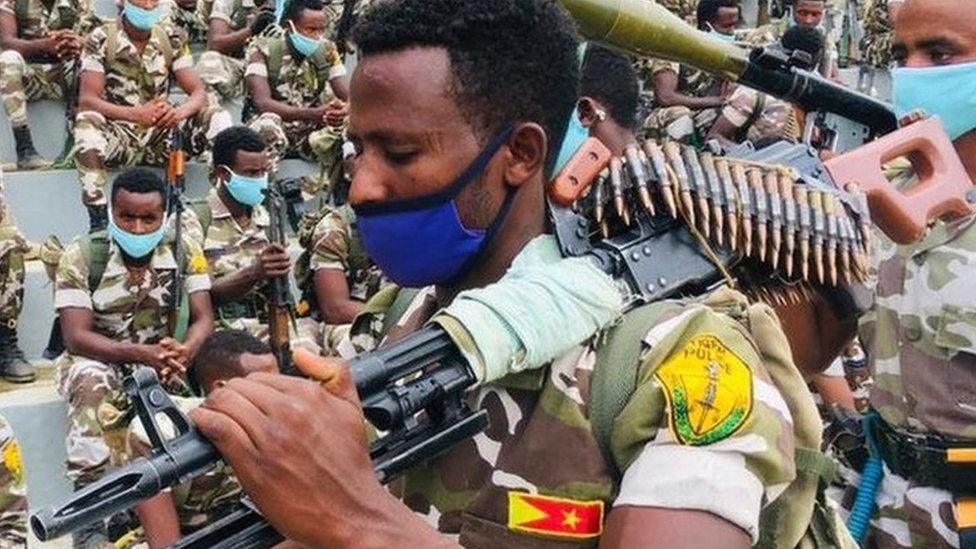Ethiopia's Tigray crisis: UN warns aid could run out
- Published
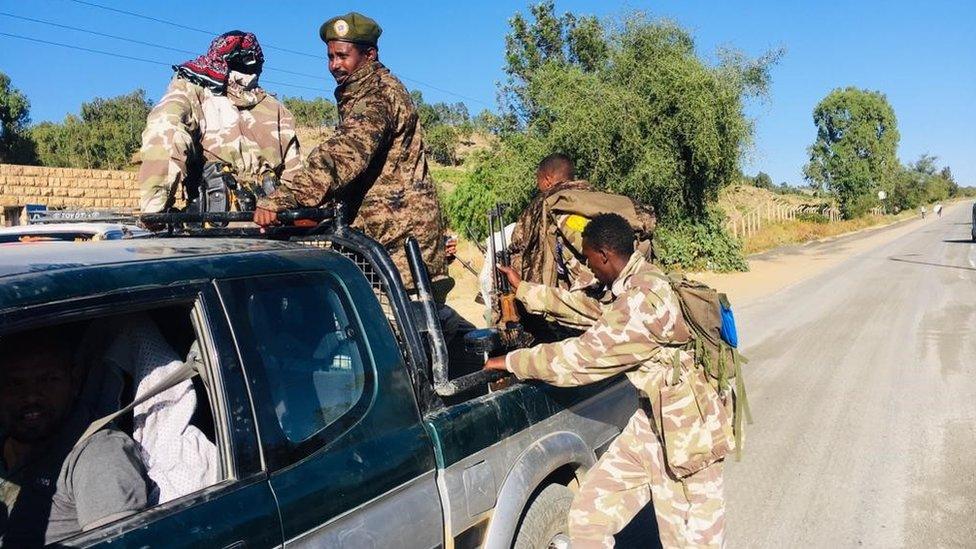
Fighting broke out eight days ago after the federal government accused Tigrayan forces of seizing an army base
Vital aid supplies to hundreds of thousands of people in northern Ethiopia are at risk because of the conflict there, a top UN official said.
"Shortages of basic commodities such as flour and fuel are being reported," Catherine Sozi, UN country director in Ethiopia, told the BBC.
Fighting in Tigray between the federal government and a regional force broke out eight days ago.
Hundreds have reportedly been killed as fears of an escalating conflict grow.
Long-standing tension between Ethiopia's federal government and the Tigray People's Liberation Front (TPLF), which controls Tigray, the country's northernmost state, boiled over into military clashes last week.
The Ethiopian government has also carried out airstrikes on military targets in Tigray.
As a result of the fighting at least 7,000 civilians have crossed the border into Sudan. They fled either the fighting itself or the fear of attack and there are concerns that many more have been forced from their homes but are still living within Tigray.
Al Sir Khalid, a commissioner for refugees in Sudan's Kassala state, told the BBC's Focus on Africa programme that some of those fleeing had walked for two or three days to escape "bombardment", and that they included Ethiopian soldiers.
The UN supplies at least 600,000 people in Tigray with food relief on a regular basis and "assistance... is bound to be interrupted if the supplies are not restocked and if movement is not permitted", Dr Sozi told the BBC's Newsday programme.


Given that banks are closed in Tigray, she also warned of cash shortages affecting people's ability to buy food.
But the UN is committed to staying "as long as our security can be reassured… we will go on as long as stocks are not exhausted".
What is the latest on the fighting?
Getting information from the region is hard as roads have been blocked, the internet is down and telephone lines have been cut.
But in a tweet on Thursday, Prime Minister Abiy Ahmed said his government was providing assistance in the areas of Tigray controlled by the federal army. This could not be independently verified.
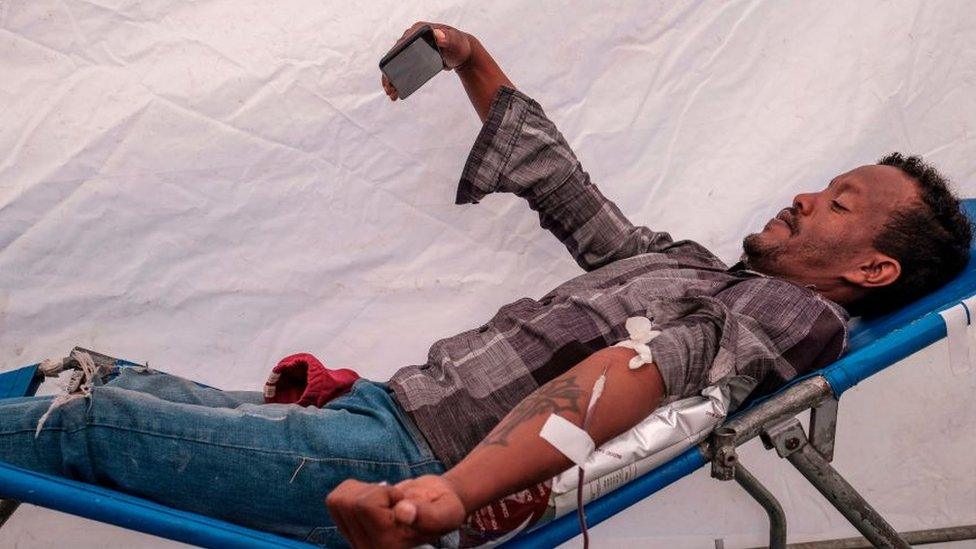
Some have been taking part in a blood donation drive in the capital, Addis Ababa, to support the federal forces
Both the federal government and Tigrayan authorities are scaling up efforts to mobilise resources indicating that the conflict may go on for some time, the BBC's Kalkidan Yibeltal reports from the capital, Addis Ababa.
On Wednesday, Tigrayans were told by the TPLF to "defend" themselves from "flagrant aggression" from the federal government.
Demonstrations and blood donation campaigns have also been held by groups in other parts of Ethiopia showing their support for the federal army.
What else is the Ethiopian government saying?
The government is sounding confident and has urged Tigrayan forces to surrender. The prime minister has tweeted that the west of Tigray has been "liberated" but again this cannot be verified.
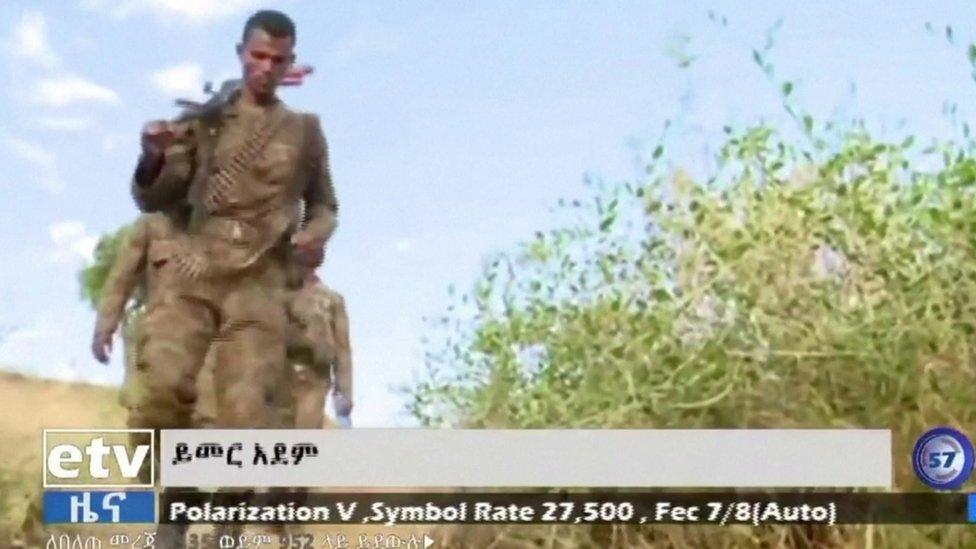
Ethiopian television is broadcasting pictures of federal soldiers in the north of the country
Defence Minister Kenea Yadeta said it would not be long before the TPLF leaders were on trial. He also talked of appointing an interim administration in areas taken by federal troops.
Parliament has voted to strip dozens of MPs from Tigray of their immunity from prosecution.
What is behind the conflict?
The TPLF was the most powerful member of Ethiopia's ruling coalition for many years but Mr Abiy curbed its influence after coming to power in 2018 on the back of anti-government protests.
Relations got worse last year after Mr Abiy - who won the 2019 Nobel Peace Prize for ending a two-decade conflict with Eritrea - dissolved the ruling coalition, which was made up of several ethnically based regional parties.
He merged them into a single, national party, the Prosperity Party, which the TPLF refused to join.
Four things that explain the crisis in the Tigray region of Ethiopia.
Tigrayan leaders say they have been unfairly targeted by purges and allegations of corruption, and say Mr Abiy is an illegitimate leader, because his mandate ran out when he postponed national elections due to the coronavirus pandemic.
Mr Abiy accuses some TPLF leaders of being "fugitives from justice" and opposing his moves to reform the way Ethiopia is run.
The row worsened in September after the TPLF defied the nationwide ban on elections, and held a vote which was declared illegal by the central government.
- Published11 November 2020
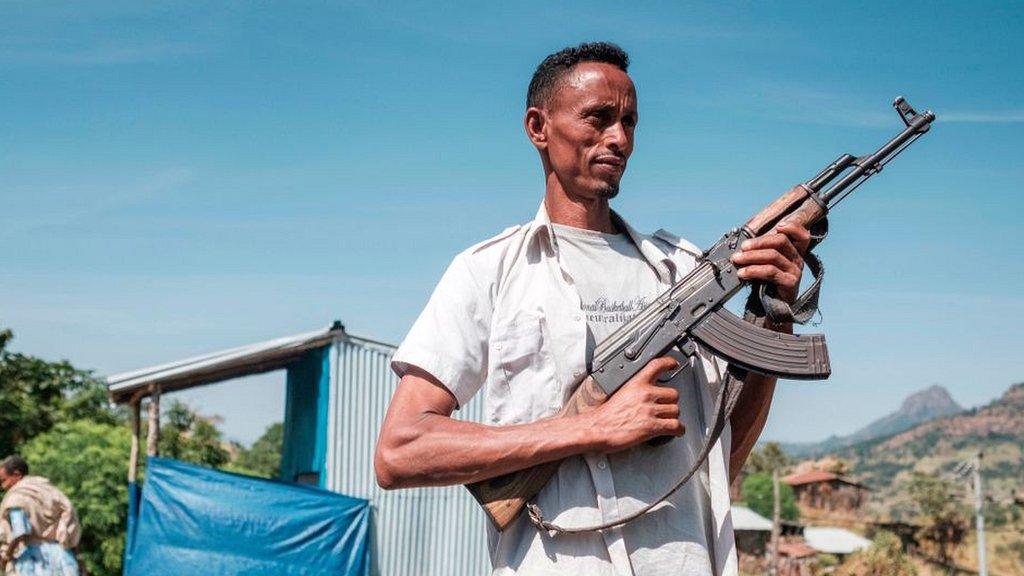
- Published29 June 2019
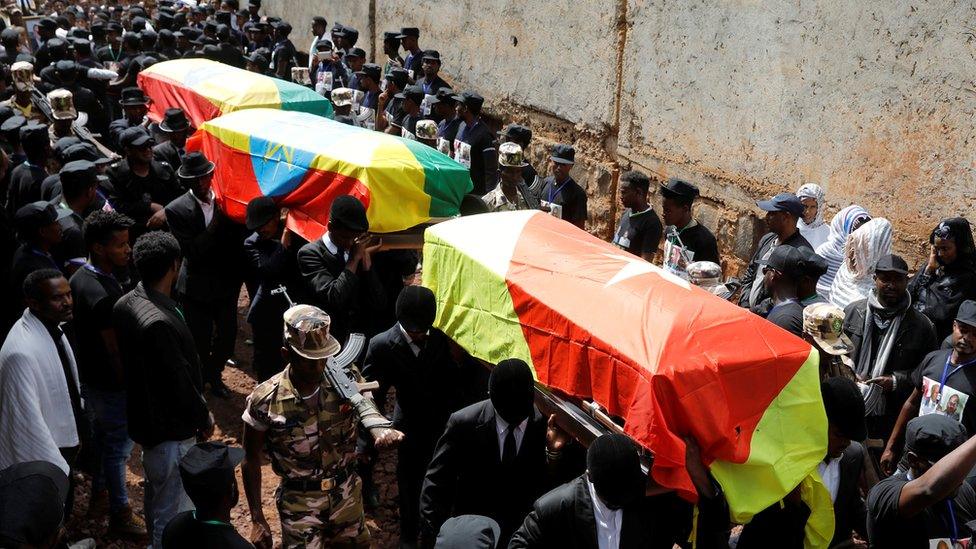
- Published13 November 2020
